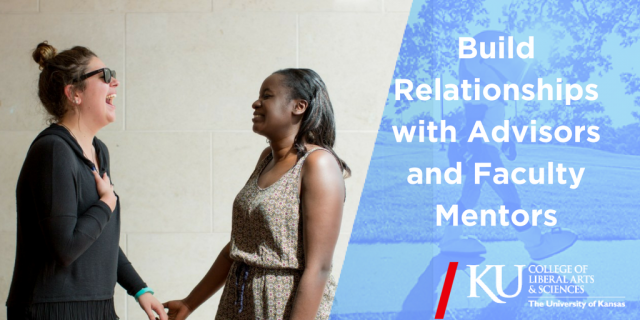by: Shelly Mann, College of Liberal Arts & Sciences Retention Advisor
As the fall semester begins, think about your academic goals and how you can connect with a faculty member or advisor, to begin building a mentoring relationship. College Advising & Student Services are here to help:
What can a mentor do for me?
Mentors can have a powerful impact on your academic journey. It’s important to have a network of people you can count on to provide support and guidance as you work toward earning a degree and defining your career goals. A mentor is more than an acquaintance. A mentor knows the benefits of a college degree, can identify with the obstacles students face and even serve as a reference for jobs or internships.
Where do I find a mentor?
Many people can serve as mentors depending on your individual needs and expectations. Often, professors or academic advisors can fill this role. Make regular appointments with your academic advisor. Stop by your professors’ office hours to ask them questions about your academic progress and get their advice on opportunities. And don’t forget, the College offers the Take Your Professor to Lunch program that allows you to take your professor to lunch for free and get to know them better as a mentor.
Mentors listen, answer questions, help problem-solve and take a sincere interest in your personal growth and professional development. They will celebrate your achievements and successes with you and provide constructive advice.
A mentoring relationship can be an empowering resource for students, but relationships require nurturing. Reach out to faculty members and advisors to ask questions, discuss challenges and to seek feedback and support. One-on-one interactions with a mentor can often lead to a broader network of contacts who share your same interests and goals.
What will we talk about?
A faculty mentor will share knowledge, experiences, resources and networks that can guide you beyond the classroom to a broader exploration of your own career path. They can provide information on how their field of study is expanding, discuss research opportunities, major course selections, suggest organizations to join and praise your accomplishments if employers call on them as a reference.
An advisor mentor will help you navigate the university system as you make progress toward graduation. Advisors will provide information including university policies and procedures, degree requirements, class scheduling, academic standing and campus resources.




